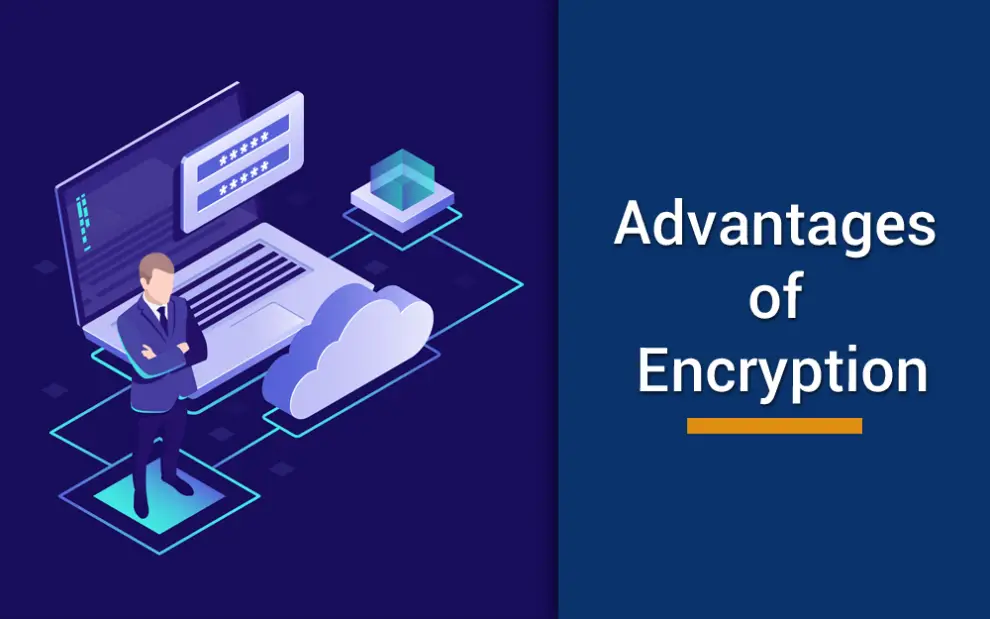In today’s world, data breaches are getting increasingly widespread. Hackers are well aware that they can sell stolen information on the dark web or use it for blackmail.
Encryption technology for data protection, on the other hand, is readily available. It entails encrypting data with scrambled code using cryptography. The data can only be read by those who have the key to decode it. Here are seven reasons why encryption technology is essential:
It’s Compatible with a Wide Range of Devices
One of the most significant advantages of contemporary encryption technology is that it can be used on all or nearly all of your electronic devices. If you lock your iPhone with a passcode or use Touch ID, your data is encrypted by default. It’s simple to walk through an encryption process on an Android phone by going to the Security menu in the Settings section. When you buy an Android device, some come with encryption turned on.
Encrypting your computer is also available in both free and premium versions. Depending on your demands, companies offer full hard disc encryption or file-based encryption. Also, don’t forget the options for encrypting the content on an SD card or a USB drive.
In addition, as SMS marketing grows in popularity, it is becoming increasingly vital to protect data across several devices. From 2019 to 2025, Grandview Research projects that the SMS marketing market would increase at a rate of 20.5 percent per year. Text messages are becoming increasingly popular as a way for businesses to communicate with their customers.
It’s possible that it will save you from paying regulatory penalties.
Depending on your particular business or the precise standards put forth by your employer, encryption technology for data protection may become necessary rather than optional. For example, in the health care sector, patient privacy rules demand keeping information encrypted. Organizations receive substantial fines for noncompliance.
In one case occurring in June 2018, the University of Texas’s MD Anderson Cancer Center received a $4.3 million penalty for violating the Health Insurance Portability and Accountability Act, more generally known as HIPAA. 30,000 patient documents were stolen from an employee’s home in 2012, which sparked the problem. There were two different incidents of data loss using USB devices in the same year, as well as in 2013.
The data was stored on non-encrypted devices. When he issued the fine, the judge in the case brought up the blatant omission. Regulatory fines are a legitimate issue in the healthcare industry, as well as other fields that frequently deal with private information. Beyond the financial impact, negative publicity may cause customers to rethink doing business with organizations that fail to retain data safely.
It Assists You in Staying Safe While Working Remotely
As a result of occurrences like these, companies are increasingly demanding employees utilize only encrypted devices. That’s not unexpected, given how other technological advancements have made it easier for people to work from any location.
However, the majority of corporate leaders believe data breach risks are increased when workers operate remotely, according to a 2018 North American survey issued by Shred-It. This viewpoint is shared by 86 percent of C-Suite executives and 60 percent of small-business owners. Whether you work remotely on a regular basis or only on occasion, data encryption ensures that sensitive information does not fall into the wrong hands.
It Ensures the Authenticity of Data.
It is also important to remember that encryption technology can help improve the integrity of the data itself. Although encryption alone cannot guarantee this, it is something you can and should employ as part of a comprehensive approach. To make business decisions, you need to have faith in the facts you’re using.
Forty percent of all business endeavors fail because of poor data quality, according to statistics. Finding out more about your consumers, trends, and other information is easier when you have access to high-quality data. Data cleansing is a common strategy used by businesses to improve quality, and it’s a fantastic place to start.
Data encryption can help to ensure that only authorized parties have access to a company’s information for the purpose of analyzing the data. As a result, a hacker is less likely to succeed in tampering with data and escaping detection.
Encryption of data could provide you with a competitive advantage.
Data encryption provides consistent protection for both data at rest and data in transit, which may provide peace of mind for those who handle information.
According to research, an increasing number of firms understand the importance of developing an encryption strategy. According to a Ponemon Institute survey released in 2019, 45 percent of enterprises asked to have an overall encryption strategy implemented consistently across their organizations in the fiscal year 2018. Only 42% of respondents said they utilized a limited encryption technique for specific applications or types of data.
The use of encryption technology to safeguard data may improve public confidence.
Some businesses encrypt data even though they aren’t obligated to do so by privacy standards because they want to demonstrate to their customers that they value their privacy. Due of the dwindling faith, many people have on the internet, making that argument is extremely critical.
53 percent of respondents to the 2019 CIGI-Ipsos Global Survey on Internet Security and Trust stated they are more concerned about online privacy now than they were one year ago. Many people (49 percent) reported that their skepticism of the internet led to them disclosing less personal information online. Surprisingly, only 19% of those polled admitted to using greater encryption to protect their personal information.
In light of these findings, businesses now have an opportunity to increase consumer confidence by disclosing how they encrypt client data directly. By stressing an emphasis on implementing the latest encryption technology into their operations, organizations can further solidify the reputations of themselves and their customers.
There are several good reasons to use encryption to protect your sensitive data. As you consider your options, consider the data and key areas of concentration presented here.







